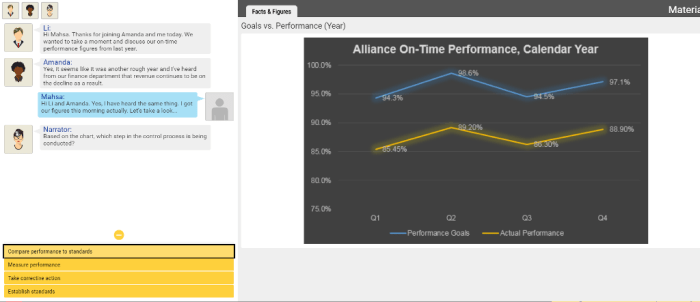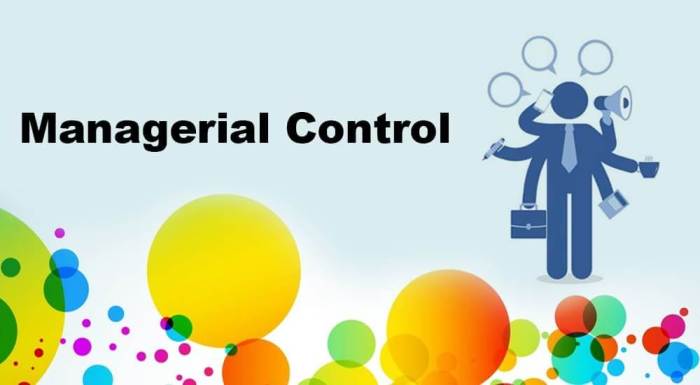Managerial control a turbulent ride – Managerial control in turbulent times is a critical topic that warrants exploration. This multifaceted concept encompasses the challenges and opportunities faced by managers as they navigate disruptions and maintain control over operations and decision-making.
This engaging narrative delves into the significance of managerial control, examining its impact on organizational performance, ethical considerations, and future trends. Through a comprehensive analysis, readers will gain invaluable insights into the complexities of managerial control in a rapidly changing business landscape.
Understanding Managerial Control in Turbulent Times

Managerial control is the process of ensuring that an organization’s resources are used effectively and efficiently to achieve its goals. In turbulent environments, characterized by rapid change and uncertainty, maintaining effective managerial control is crucial for organizational success.
Managers face challenges such as managing risk, adapting to change, and maintaining visibility over operations. However, they also have opportunities to enhance control by leveraging technology, fostering collaboration, and embracing agile practices.
Challenges and Opportunities in Maintaining Control During Disruptions
- Increased risk and uncertainty
- Rapid technological advancements
- Changing customer expectations
- Need for agility and adaptability
Techniques for Strengthening Managerial Control
To strengthen managerial control, managers can employ various strategies:
Monitoring Performance
- Establish clear performance metrics
- Use dashboards and reporting tools
- Conduct regular performance reviews
Managing Risk
- Identify and assess potential risks
- Develop mitigation plans
- Implement risk management frameworks
Adapting to Change
- Foster a culture of innovation and adaptability
- Use agile methodologies
- Encourage employee participation in decision-making
Impact of Managerial Control on Organizational Performance

Effective managerial control has a significant impact on organizational performance:
Efficiency and Profitability
- Optimizes resource allocation
- Reduces waste and errors
- Improves decision-making
Reputation and Compliance
- Ensures compliance with laws and regulations
- Protects the organization’s reputation
- Builds trust with stakeholders
Ethical Considerations in Managerial Control

Managers have ethical responsibilities in exercising control:
Transparency and Accountability
- Disclose control mechanisms and performance results
- Be accountable for control decisions
- Avoid conflicts of interest
Balance between Control and Autonomy
- Empower employees with decision-making authority
- Foster a culture of trust and collaboration
- Avoid excessive control that stifles creativity
Future Trends in Managerial Control

Emerging trends are shaping the practice of managerial control:
Technology and Automation
- Artificial intelligence (AI) for data analysis and decision-making
- Robotic process automation (RPA) for automating repetitive tasks
- Blockchain for secure data management
Collaboration and Agility, Managerial control a turbulent ride
- Cloud-based platforms for real-time collaboration
- Agile methodologies for adapting to change quickly
- Cross-functional teams for improved decision-making
Clarifying Questions: Managerial Control A Turbulent Ride
What is the significance of managerial control in turbulent times?
Managerial control is crucial in turbulent times as it enables managers to maintain stability, adapt to change, and make informed decisions amidst disruptions.
How can managers strengthen their managerial control?
Managers can strengthen their managerial control by implementing effective strategies for monitoring performance, managing risk, and adapting to change.
What are the ethical considerations associated with managerial control?
Managers have ethical responsibilities to exercise control transparently, accountably, and with a balance between control and autonomy.
How does managerial control impact organizational performance?
Effective managerial control enhances organizational efficiency, profitability, and reputation by mitigating risks and improving outcomes.